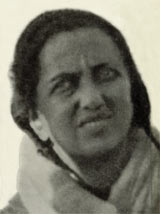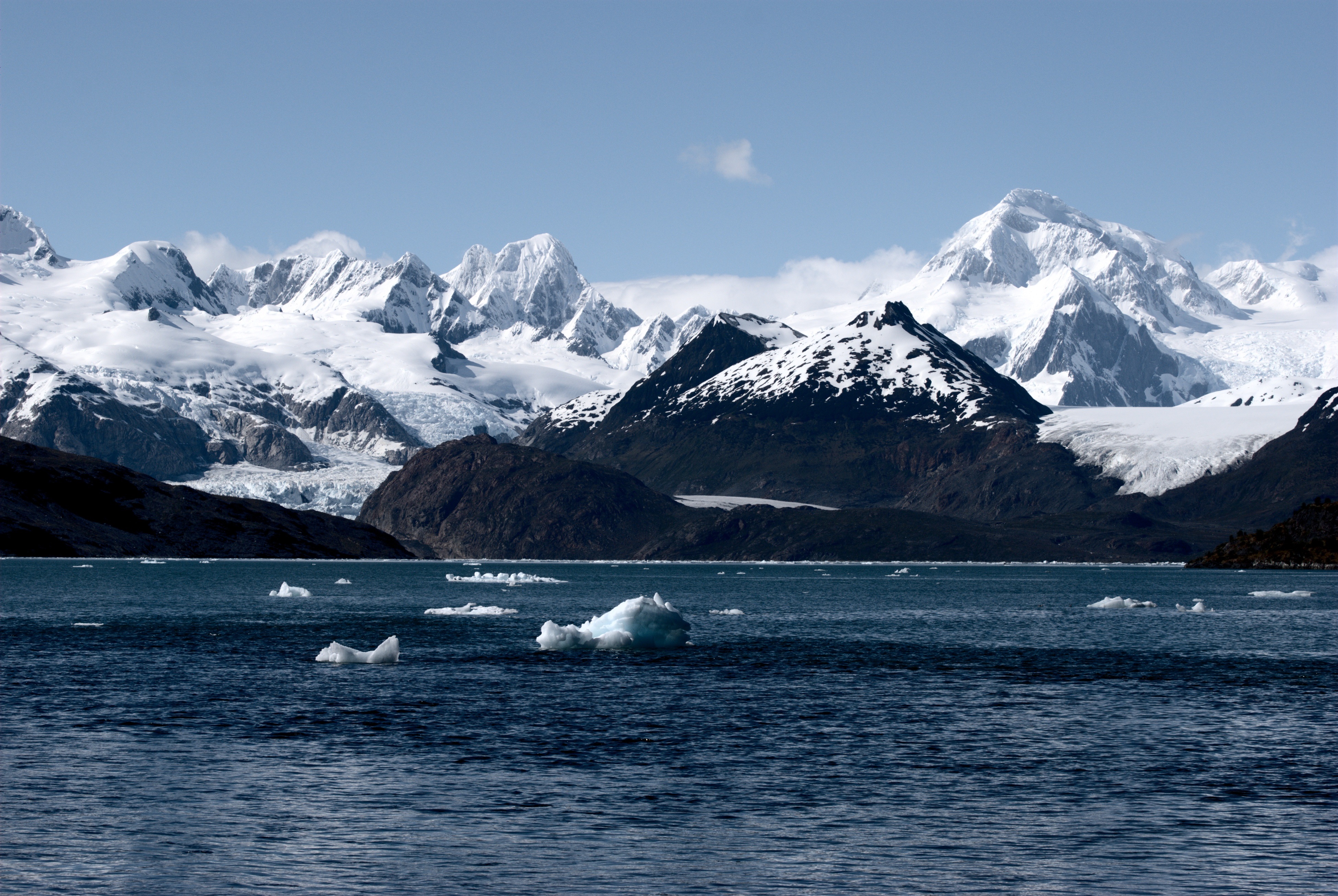|
Mika Feldman De Etchebéhère
Mika Feldman de Etchebéhère (née Micaela Feldman; Moisés Ville, Santa Fe Province, 14 March 1902 — Paris, 7 July 1992) was an Argentine militant anarchist and Marxist. She served as captain of the POUM militia during the Spanish Civil War in 1936, and was also active in the anarcha-feminist organization, Mujeres Libres. Life Mika was born in 1902, in Moisés Ville, a small colony founded in 1889 in the province of Santa Fe, in Argentina, by Russian and Eastern-European Jews fleeing persecutions and pogroms. Her father taught Yiddish in Moisés Ville, before moving to Rosario, where he opened a small restaurant. As a child, Mika allegedly heard many stories about Russian revolutionary fighters escaping tsarist prisons.Estel Negre notice biographique At age 15, she began being an active member of Rosario's local anarchist organization. Along with Eva Vives, Joan Pauna and other fellow activists, she created a group named after Louise Michel, the famous anarchist figure of ... [...More Info...] [...Related Items...] OR: [Wikipedia] [Google] [Baidu] |
University Of Buenos Aires
The University of Buenos Aires (, UBA) is a public university, public research university in Buenos Aires, Argentina. It is the second-oldest university in the country, and the largest university of the country by enrollment. Established in 1821, the UBA has educated 17 President of Argentina, Argentine presidents, produced four of the country's five Nobel Prize laureates, and is responsible for approximately 40% of the country's research output. The university's academic strength and regional leadership make it attractive to many international students, especially at the postgraduate level. Just over 4 percent of undergraduates are foreigners, while 15 percent of postgraduate students come from abroad. The Faculty of Economic Sciences, University of Buenos Aires, Faculty of Economic Sciences has the highest rate of international postgraduate students at 30 percent, in line with its reputation as a "top business school with significant international influence." The University o ... [...More Info...] [...Related Items...] OR: [Wikipedia] [Google] [Baidu] |
Spanish Coup Of July 1936
The Spanish coup of July 1936( or, among the rebels, ) was a military uprising that was intended to overthrow the Spanish Second Republic, but precipitated the Spanish Civil War, in which Nationalists fought against Republicans for control of Spain. The coup was organized for 18 July 1936, although it started the previous day in Spanish Morocco. Instead of resulting in a prompt transfer of power, the coup split control of the Spanish military and territory roughly in half. The resulting civil war ultimately led to the establishment of a nationalist regime under Francisco Franco, who became ruler of Spain as ''caudillo''. The rising was intended to be swift, but the government retained control of most of the country including Málaga, Jaén and Almería. Cádiz was taken by the rebels, and General Gonzalo Queipo de Llano managed to secure Seville. In Madrid, the rebels were hemmed into the Montaña barracks, which fell with much bloodshed. On 19 July, the cabinet, headed by ... [...More Info...] [...Related Items...] OR: [Wikipedia] [Google] [Baidu] |
Second Spanish Republic
The Spanish Republic (), commonly known as the Second Spanish Republic (), was the form of democratic government in Spain from 1931 to 1939. The Republic was proclaimed on 14 April 1931 after the deposition of Alfonso XIII, King Alfonso XIII. It was dissolved on 1 April 1939 after surrendering in the Spanish Civil War to the Nationalist faction (Spanish Civil War), Nationalists led by General Francisco Franco. After the proclamation of the Republic, Provisional Government of the Second Spanish Republic, a provisional government was established until December 1931, at which time the Spanish Constitution of 1931, 1931 Constitution was approved. During the subsequent two years of constitutional government, known as the First Biennium, Reformist Biennium, Manuel Azaña's executive initiated numerous reforms. In 1932 religious orders were forbidden control of schools, while the government began a large-scale school-building project. A moderate agrarian reform was carried out. Home r ... [...More Info...] [...Related Items...] OR: [Wikipedia] [Google] [Baidu] |
Argentine Army
The Argentine Army () is the Army, land force branch of the Armed Forces of the Argentine Republic and the senior military service of Argentina. Under the Argentine Constitution, the president of Argentina is the commander-in-chief of the Armed Forces. Command authority is exercised through the Ministry of Defense (Argentina), Minister of Defense. The Army's official foundation date is May 29, 1810 (celebrated in Argentina as the ''Army Day''), four days after the May Revolution, Spanish colonial administration in Buenos Aires was overthrown. The new national army was formed out of several pre-existing colonial militia units and locally manned regiments; most notably the Regiment of Patricians, Infantry Regiment "Patricios", which to this date is still an active unit. History Several armed expeditions were sent to the Upper Peru (now Bolivia), Paraguay, Uruguay and Chile to fight Spanish forces and secure Argentina's newly gained Argentine Declaration of Independence, independe ... [...More Info...] [...Related Items...] OR: [Wikipedia] [Google] [Baidu] |
Patagonia (Argentina And Chile)
Patagonia () is a geographical region that includes parts of Argentina and Chile at the southern end of South America. The region includes the southern section of the Andes mountain chain with lakes, fjords, temperate rainforests, and glaciers in the west and deserts, tablelands, and steppes to the east. Patagonia is bounded by the Pacific Ocean on the west, the Atlantic Ocean to the east, and many bodies of water that connect them, such as the Strait of Magellan, the Beagle Channel, and the Drake Passage to the south. The northern limit of the region is not precisely defined; the Colorado and Barrancas rivers, which run from the Andes to the Atlantic, are commonly considered the northern limit of Argentine Patagonia. The archipelago of Tierra del Fuego is sometimes considered part of Patagonia. Most geographers and historians locate the northern limit of Chilean Patagonia at Huincul Fault, in Araucanía Region.Manuel Enrique Schilling; Richard WalterCarlson; AndrésTassara; ... [...More Info...] [...Related Items...] OR: [Wikipedia] [Google] [Baidu] |
Trotskyism
Trotskyism (, ) is the political ideology and branch of Marxism developed by Russian revolutionary and intellectual Leon Trotsky along with some other members of the Left Opposition and the Fourth International. Trotsky described himself as an orthodox Marxist, a Revolutionary socialism, revolutionary Marxist, and a Bolshevik–Leninist as well as a follower of Karl Marx, Frederick Engels, Vladimir Lenin, Karl Liebknecht, and Rosa Luxemburg. His relations with Lenin have been a source of intense historical debate. However, on balance, scholarly opinion among a range of prominent historians and political scientists such as E.H. Carr, Isaac Deutscher, Moshe Lewin, Ronald Suny, Richard B. Day and W. Bruce Lincoln was that Lenin’s desired “heir” would have been a collective leadership, collective responsibility in which Trotsky was placed in "an important role and within which Joseph Stalin, Stalin would be dramatically demoted (if not removed)". Trotsky advocated for a decen ... [...More Info...] [...Related Items...] OR: [Wikipedia] [Google] [Baidu] |
Leon Trotsky
Lev Davidovich Bronstein ( – 21 August 1940), better known as Leon Trotsky,; ; also transliterated ''Lyev'', ''Trotski'', ''Trockij'' and ''Trotzky'' was a Russian revolutionary, Soviet politician, and political theorist. He was a key figure in the 1905 Revolution, October Revolution of 1917, Russian Civil War, and the establishment of the Soviet Union, from which he was exiled in 1929 before Assassination of Leon Trotsky, his assassination in 1940. Trotsky and Vladimir Lenin were widely considered the two most prominent figures in the Soviet state from 1917 until Death and state funeral of Vladimir Lenin, Lenin's death in 1924. Ideologically a Marxist and a Leninist, Trotsky's ideas inspired a school of Marxism known as Trotskyism. Trotsky joined the Russian Social Democratic Labour Party in 1898, being arrested and exiled to Siberia for his activities. In 1902 he escaped to London, where he met Lenin. Trotsky initially sided with the Mensheviks against Lenin's Bolsheviks in ... [...More Info...] [...Related Items...] OR: [Wikipedia] [Google] [Baidu] |
Libération (journal)
(), popularly known as ''Libé'' (), is a daily newspaper in France, founded in Paris by Jean-Paul Sartre and Serge July in 1973 in the wake of the protest movements of May 1968. Initially positioned on the far left of France's political spectrum, the editorial line evolved towards a more centre-left stance at the end of the 1970s, where it remains as of 2012. The publication describes its "DNA" as being "liberal libertarian". It aims to act as a common platform for the diverse tendencies within the French Left, with its "compass" being "the defence of freedoms and of minorities". Edouard de Rothschild's acquisition of a 37% capital interest in 2005, and editor Serge July's campaign for the "yes" vote in the referendum establishing a Constitution for Europe the same year, alienated it from a number of its left-wing readers. In its early days, it was noted for its irreverent and humorous style and unorthodox journalistic culture. All employees, including management, receiv ... [...More Info...] [...Related Items...] OR: [Wikipedia] [Google] [Baidu] |






